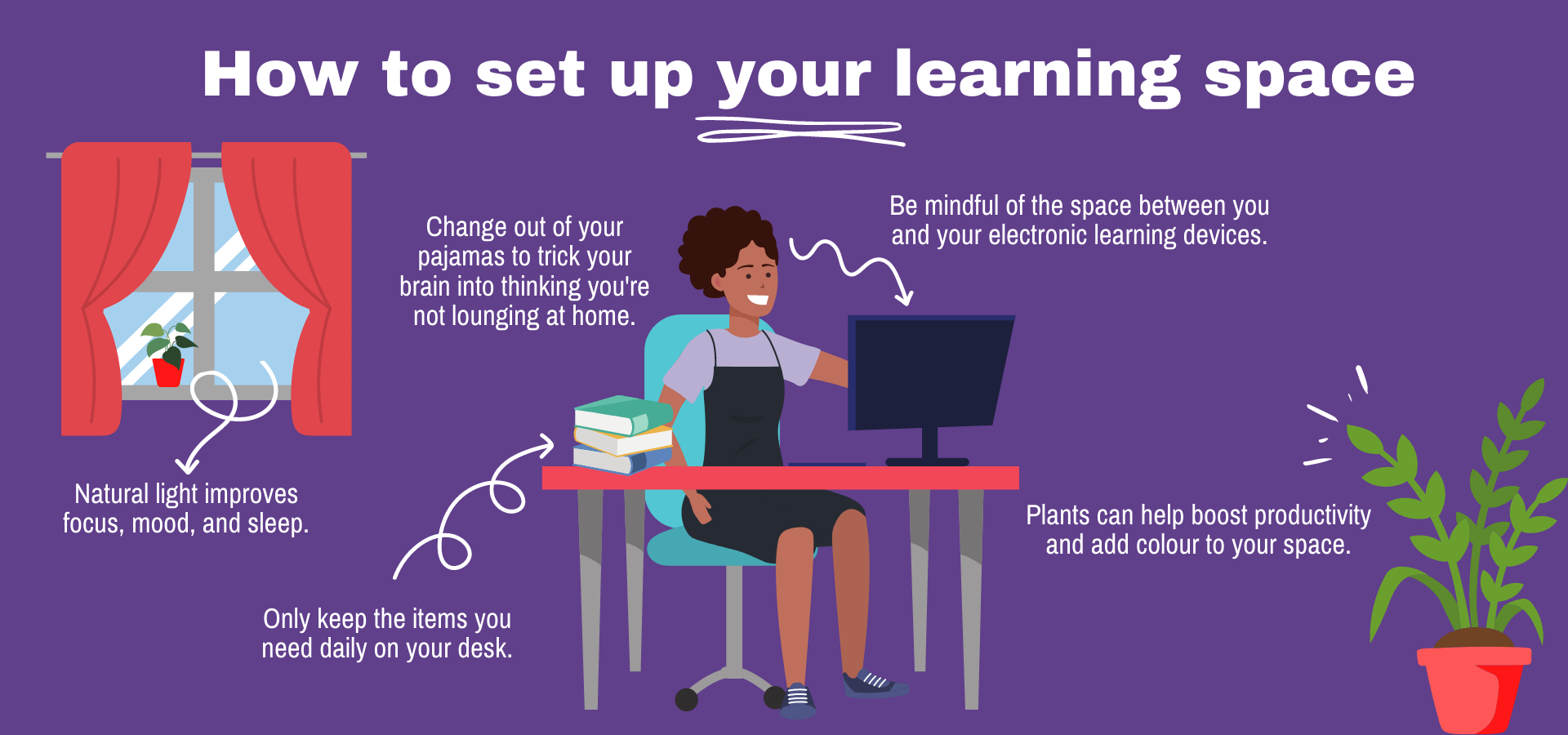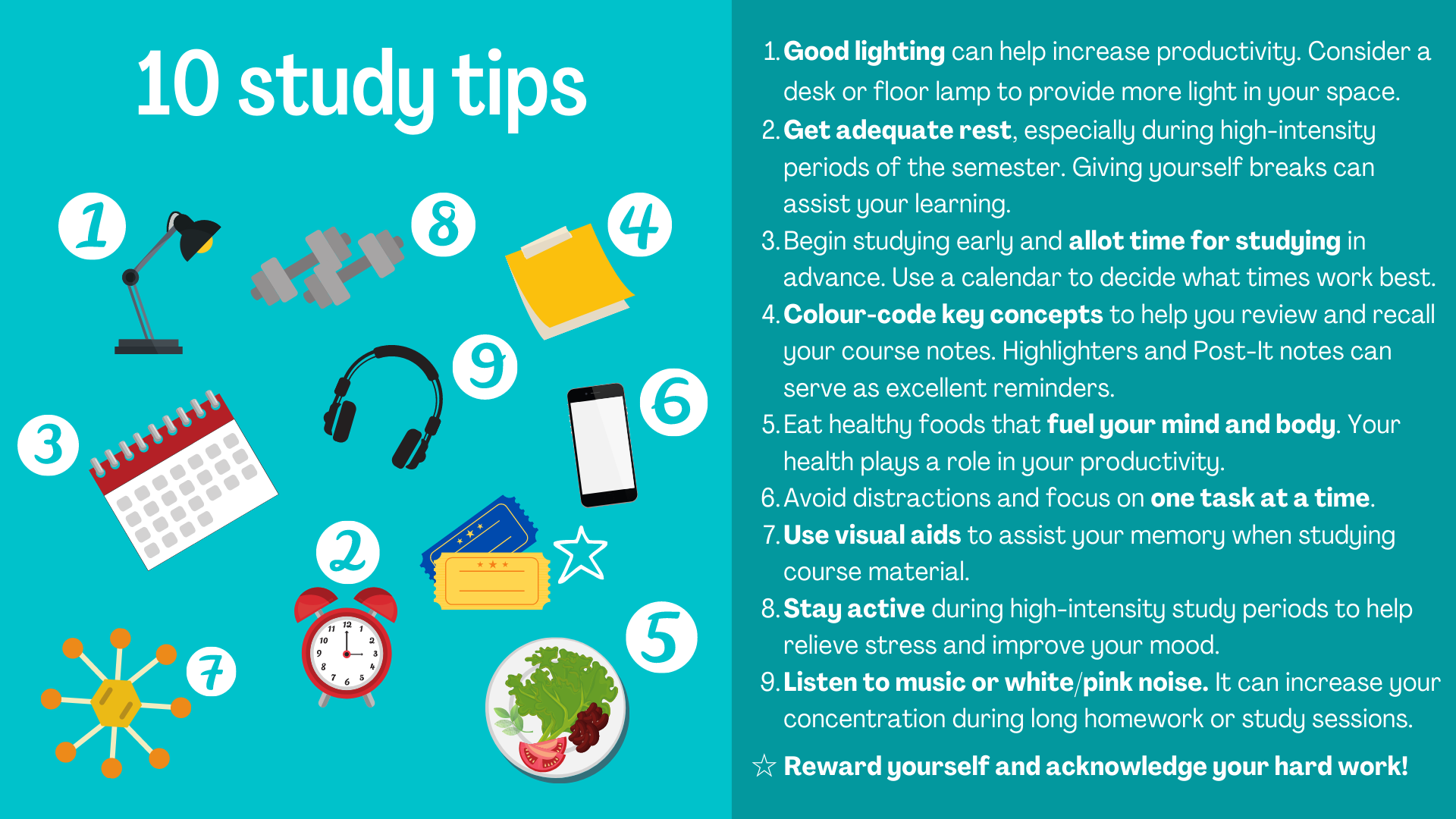Academic Success
As a student, it’s important to learn to recognize your academic strengths and challenges. How do you learn best and how do you seek help? Here are the academic support resources to best support you as you advance in your role as a critical thinker and lifelong learner.
Swoop’s Tips for Academic Success

- Create a study space that will help you stay productive and minimize distractions.
- Plan out your semester! Use an agenda or calendar to keep track of due dates.
- Prepare for class by keeping up with course readings and homework.
- Get involved in the UofGH community – students that are engaged in co-curricular activities perform better academically and are more satisfied with their university experience!
- Connect with your peers. Chat with other students in your program in your FYE Group, and once classes start, reach out to your classmates on discussion boards or WhatsApp groups.
- Ask for help from any of our academic resources. Adjusting to the university workload is hard! We have a big team to help you through it.
Succeeding in Different Course Delivery Formats
How do you focus when you're studying, socializing, and attending class in the same space that you eat, sleep, and relax? How do you maintain that focus when you’re back on campus for class for the first time?
We’ve compiled two sets of tips to help you succeed no matter what format your courses are in.
On Campus
1. Arriving early
Aim to arrive to campus at least 15 minutes before your class to allow for time to get to the classroom, find a seat, prepare any materials, and make any other stops as needed.
2. Posture
Sitting up straight with your feet on the floor can help reduce soreness in your back, shoulders, and neck from sitting for a long time.
3. Food
Bring drinks and snacks with you for break times, especially if you’ll be on campus for a longer portion of the day.
4. Distractions
Turn your phone on “Do Not Disturb” or power it off to avoid being distracted by it.
5. Participation
Participate in discussions as much as possible to help you stay engaged with the content.
Virtual
1. Establish a consistent routine
Wake up at the same time, change out of your pajamas, organize your workspace, and allocate time to work on assignments or study for tests.
2. Prep ahead of time
Try to prepare for class at least 15 minutes before so you have time to sort out any technical difficulties and gather any materials needed.
3. Find a place to work
If possible, be seated at a table or desk in a quiet space while attending class or working on homework. Avoid doing everything from your bed – this will hinder your productivity.

4. Posture
Sitting up straight with your feet on the floor and having your screen at eye-level can help reduce soreness in your back, shoulders, and neck.
5. Avoid distractions
Turn your phone on “Do Not Disturb” or power it off to avoid being distracted by it. Let your family or housemates know when your classes are so they know when you’re unavailable or need to focus.
6. Engagement
Turn on your webcam in class! It can be intimidating, but it will encourage your classmates to turn their cameras on and helps you connect with your instructor. Participate in discussions using the chat or discussion boards too – you’ll not only stay engaged with the content but also get an opportunity to interact with your classmates.
7. Avoid screen fatigue
Take breaks from the screen frequently to avoid screen fatigue. Get up and stretch, go for a walk, or do some other activity to get yourself moving.

Managing Individual and Group Assignments
The assignments you’ll receive in university can be similar to assignments you worked on in high school. Most students find the biggest differences between high school and university assignments are the length of time spent on the assignment, the number of assignments per course, and the weight of each assignment. Instructors often provide a combination of individual assignments (like reflections, essays, presentations, and speeches) and group work.
Individual Assignments
- Make note of official deadlines.
- Divide the work into smaller tasks to work on a little bit at a time. Set deadlines for when you want each part done.
- Prioritize your assignments and studying – work on what’s due sooner or what will take the longest first!
- Hold yourself accountable to get things done.
- Ask for help when you need it. This includes asking for help from your professor or requesting extensions if you’re really struggling.
- Get feedback from peers, professors, or other support services on campus.
Group Work
- Establish an easy way to communicate with your group from the beginning (WhatsApp is a great one!). Communication is key in group assignments.
- Divide the work and establish deadlines for when certain tasks should be done.
- Hold each other accountable for completion of each task. Be honest and give feedback to other group members if necessary.
- Ask for help or feedback from other group members as you complete your part. They may have further insight, ideas, or constructive criticism for you.
- Attempt to meet a few times throughout the project (whether in-person or virtually) to discuss progress and any questions people may have.
Your Support System
Ready to Succeed?
Match the scenario with the service that would offer the best assistance to the student.

